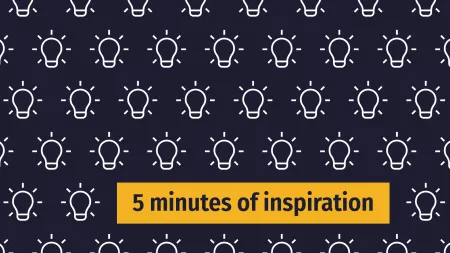When might bread build your self-confidence? When you feel like you have a way to move forward, and like you’re contributing to the future for yourself and your community.
“I felt like life will go on, and we are able to find new ways to live a better life.” That’s what Nidal says when you ask him what’s different about his life after working with his community to improve wheat production. What’s his advice was to others who face the same challenges? ‘Depend on yourself to improve your situation and your life.”
Nidal is one of more than 150,000 people who worked with CARE’s Food For Peace project to improve food security in Syria. From growing more food, to building bakeries, to monitoring quality—Syrians drove dramatic improvements in their own livelihoods. 41% of those people said the project had positive psychological effects on their lives, including a feeling of self-sufficiency, self-confidence, stability, and feeling safe.
With $12.6 million in funding from USAID, the project reached more than 150,000 people directly and 746,594 people indirectly between July 2019 and September 2020 working with local partners.
What changed?
- People have more food: People were 10 times more likely to have enough food. 48% of people ate better quality food, and 63% of people ate more diverse meals.
- Markets got stronger: Farmers actually grew more food, and bakeries were able to produce and sell more bread. 65% of farmers say this helped them overcome challenges accessing markets. Bakeries said bread prices were more stable and higher demand made it possible for everyone to produce more food.
- People’s lives are better. 57% of people said cash transfers improved their lives considerably, and 42% of farmers said their lives improved considerably. (97% of people said their lives improved at all, and 99% of people were satisfied with the project).
- More people have jobs: As one person said, “The project had a huge positive impact because it activated the mills in the region and created job opportunities, as 70 workers work in our mill, which means 70 families benefited.”
- Communities are stronger: 23% of farmers said there were community-wide improvements in solidarity as people were able to support needy families.
- People have better mental health: 41% of people pointed to better mental health, feeling more self-sufficient and self-confident.
How did it happen?
- Working with others: the project worked with local partners, bakeries, farmers, and community “bread committees” who monitored quality and made sure that bread was available at the right prices and to people who needed it.
- Helping the supply chain connect: Working with a project funded through the UK that was also supporting farmers, the team was able to connect farmers to bakeries who could buy subsidized wheat and offer a higher price. Some bakeries were able to improve their infrastructure or get grants. Those bakeries were then able to sell to people who got cash or vouchers, so the market was able to work for everyone.
- Let communities run the show: 85% of farmers said they had been consulted about their needs, and communities helped decide who qualified for benefits. 85% of people new about how to get support, and felt that support went to those who need it most. Communities set up “bread agents” who could take food to people who lived far away or were not able to easily travel to bakeries and “bread committees” to monitor quality and price.
- Support people in stages: In round 1, almost all of the cash transfers went into buying food. By the 8th round, people were also putting money into health care and paying down debts. For farmers, the project helped people access seeds. If they planted the seeds, then they could access fertilizers.
- Listen to feedback, and then change. The project set up hotlines and other ways for people to send in complaints and suggestions (Whatsapp was especially popular). They also used project data systems to see that they needed to offer bigger vouchers for people, set up better distribution systems to reach those with mobility issues, and set up different distribution systems so women felt safe.
Want to learn more?
Read the evaluation.
